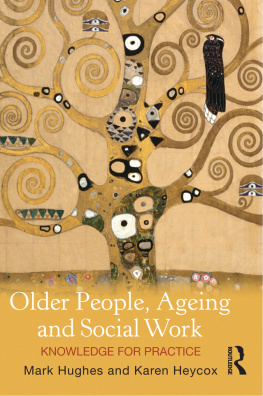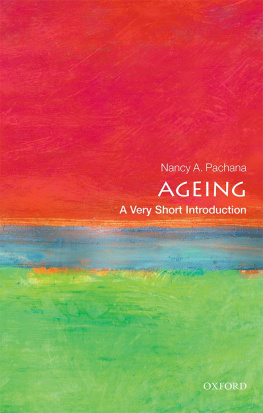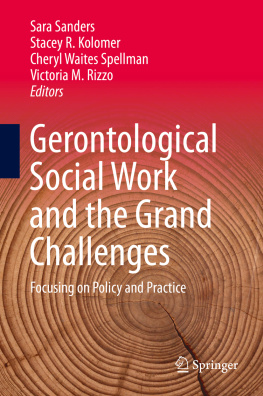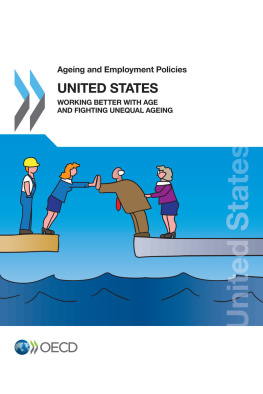Ageing as a Social Challenge
With a focus on the case of Poland, where an ageing population poses a crucial challenge for the states social, family, and gerontological policy, this book explores ageing as a personal and social phenomenon, considering the ways in which the experience of ageing is shaped by younger generations attitudes, government support policies, local initiatives undertaken help older people stay active, and the ways in which the elderly themselves understand their own mortality. Employing demographic, philosophical, legal, psychological, gerontological perspectives, it emphasises activities that can support older adults locally or nationwide and proposes the development of a social policy and social attitudes that can facilitate changes in the social perception of ageing, together with a redistribution of resources for older adults. As such, it will appeal to scholars across the social sciences with interests in ageing and the lifecourse, as well as those who wish to support older adults with concrete solutions and familiarize themselves with the ageing process from an individual and social perspective.
Maria uszczyska is Assistant Professor in the Faculty of Social Sciences at The Pontifical University of John Paul II in Krakow, Poland. She is the editor of Researching Ageing: Methodological Challenges and their Empirical Background.
Social Perspectives on Ageing and Later Life
This series publishes scholarly monographs and edited volumes concerned with the social aspects of ageing and later life, with particular emphasis on issues such as social exclusion and the lived environment, poverty, health and illness, access to services, the family, connectedness and independence, as well as work centred on research methods in relation to ageing.
Ageing and Covid-19
Making Sense of a Disrupted World
Edited by Maria uszczyska and Martin Formosa
Ageing as a Social Challenge
Individual, Family and Social Aspects in Poland
Maria uszczyska
For more information about this series, please visit:
https://www.routledge.com/sociology/series/SPALL
First published 2021
by Routledge
2 Park Square, Milton Park, Abingdon, Oxon OX14 4RN
and by Routledge
605 Third Avenue, New York, NY 10158
Routledge is an imprint of the Taylor & Francis Group, an informa business
2021 Maria uszczyska
The right of Maria uszczyska to be identified as author of this work has been asserted in accordance with sections 77 and 78 of the Copyright, Designs and Patents Act 1988.
All rights reserved. No part of this book may be reprinted or reproduced or utilised in any form or by any electronic, mechanical, or other means, now known or hereafter invented, including photocopying and recording, or in any information storage or retrieval system, without permission in writing from the publishers.
Trademark notice: Product or corporate names may be trademarks or registered trademarks, and are used only for identification and explanation without intent to infringe.
British Library Cataloguing-in-Publication Data
A catalogue record for this book is available from the British Library
Library of Congress Cataloging-in-Publication Data
A catalog record has been requested for this book
ISBN: 978-1-032-19483-7 (hbk)
ISBN: 978-1-032-19486-8 (pbk)
ISBN: 978-1-003-25940-4 (ebk)
DOI: 10.4324/b22775
Typeset in Times New Roman
by codeMantra
The publication has been prepared as part of the Global Ageing Research Partnership, a project funded by the Polish National Agency for Academic Exchange (NAWA).
Preface
The origins and aims of this book
There is a common belief in the academic community that at a certain stage of their academic careers, scientists begin to choose for analysis the kinds of issues that somehow relate to their private lives. Such tendencies are understandable, insofar as researchers need to find a source of motivation that will allow them to persevere through what are often long years of stu2z2zzdy and analysis within the same thematic area. Within this context, I have sometimes wondered (only half in jest) why the entire scientific world has not chosen to focus on the study of old age? After all, the desire for longevity (or even immortality) has been a deep-seated aspect of human nature for thousands of years. The fact that ageing is a universal topic that will personally affect each of us might suggest that every sane researcher should seek to understand it, using whatever scholarly means are at his or her disposal.
Such a desire inspired my own initial interest in the topic of old age, which grew out of inquiries in the field of thanatology that led me to become curious about the experiences of elderly persons who, as a result of their place within the life course, are closer than most others to a natural death. I anticipated that acquiring a better understanding of older adults perspectives would help with developing an awareness of mortality and taming this inevitable aspect of human life. That hope turned out to be in vain though, as it became apparent that the elderly do not possess a better recipe for dying than young people do and yet that line of inquiry proved to be incredibly valuable, as older adults revealed themselves to possess a vast wealth of experience on the topic of life and living. Thus, more than a decade ago, I began in earnest a journey of learning about old age from various perspectives and through the prisms of different scientific disciplines. My growing interest in the field during these years coincided with the development of increasingly reliable demographic forecasts that showed ever more clearly that a Silver Tsunami was approaching, and that in the coming years, old age would permanently change the face of the planet. In a sense, this volume constitutes a record of the scholarly journey undertaken during this decade in which questions of old age and ageing have come to be seen as increasingly critical worldwide. In preparing this book, I hope to support all researchers, practitioners, and policy-makers who wish to familiarize themselves with the ageing process from an individual and social perspective and to develop concrete solutions for aiding older adults.
The volume may be of particular relevance for scholars who are seeking to study the situation of the elderly from comparative international perspectives. While ageing and old age are universal experiences, the ways in which communities around the world are attempting to creatively address the challenges brought by these phenomena are deeply influenced by local historical, political, economic, and cultural factors. Solutions to the challenge of ageing that arise spontaneously in one part of the world may not (yet) be obvious or feasible in other parts of the world. It is thus useful to conduct an in-depth analysis of the manner in which the challenges of ageing are being understood and addressed in a particular concrete society; to situate that analysis within the context of the global phenomenon of old age; and to make the resulting insights available to scholars and practitioners worldwide.
The country in which most of my research has been carried out over the last decade Poland is one of the largest and most influential countries in its region, and the complex chain of political and economic changes that the nation has experienced over the last century means that, today, Poland faces a distinct set of challenges relating to ageing and is formulating its own unique set of responses, some of which are proving more successful than others. However, despite the countrys potential significance for the global discourse on old age, language barriers mean that many of the most impactful studies, analyses, methodologies, initiatives, and proposals developed in Poland relating to ageing have remained inaccessible to the broader global community of scholars and practitioners.






